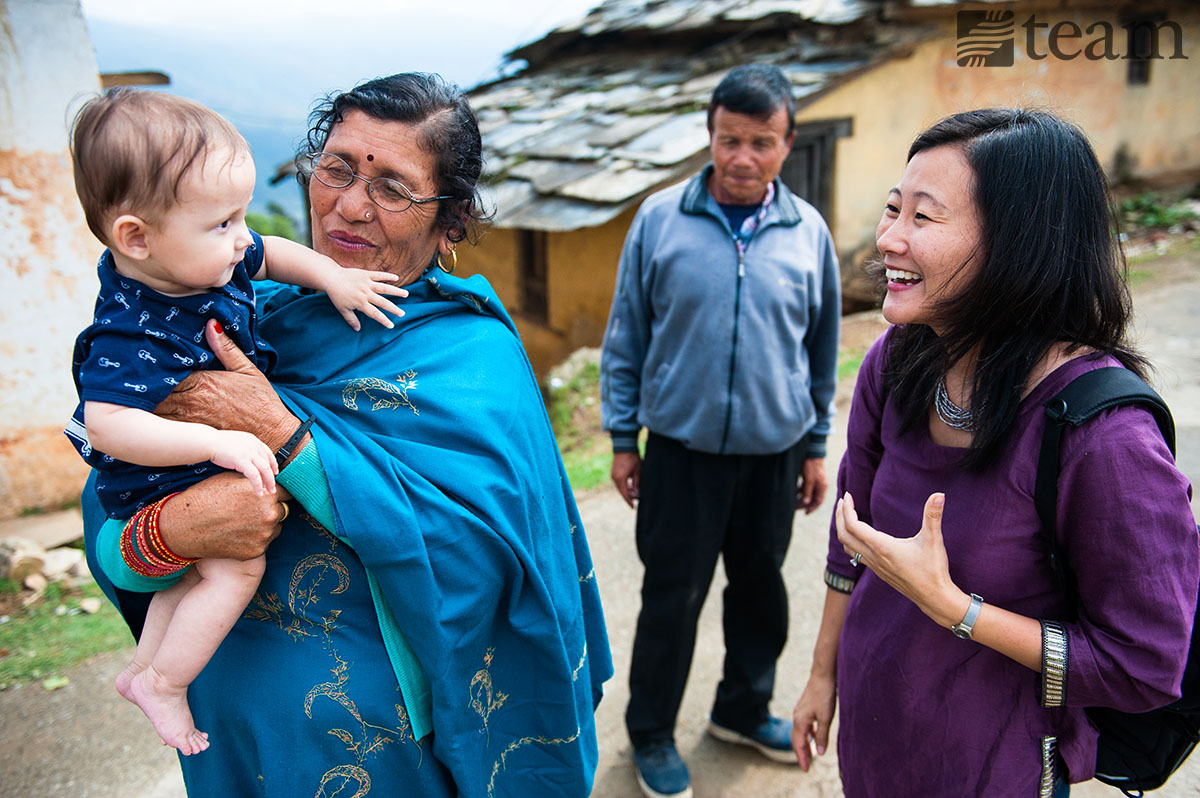
Becoming a Missionary, Missionary Life
Minorities in Missions: When You’ve Never Fit in Anywhere
December 18, 2019
by Leslie Lesher

¡Lea esta publicación en español aquí!
Recently, I was at a missions conference where I joined a seminar on Latina women in leadership. One of the participants, a first-generation American with Hispanic background made a comment that struck me.
She said, “I feel called to go serve in Japan, but if I don’t fit in here in America where I was born because I’m a minority, how much harder will it be to fit in, in a different country?”
As a missions coach, I have a list of different reasons why people choose not to go overseas: fear of the unknown, student debt, not being good at language learning, not wanting to leave family, etc.
This one was not in my repertoire.
So, I talked with some of our missionaries to hear about their experiences. I found out that being a minority in missions comes with a set of challenges — but it also comes with real advantages. Here’s what our missionaries had to say.
Facing Your Fears
“As an African-American, minority woman with a husband with European roots and three biracial children, I was fearful about how we would be accepted into a church planting team in Germany,” says TEAM missionary Beth Chadwick
But in the midst of her fear, Beth thought of the Israelites. God continually encouraged them to remember what He had done for them and how He had provided. Likewise, Beth had to remember past times when she had this concern and how the Lord faithfully reassured her that “God is writing my family’s story and I could trust His good hand and kind heart.”
“There have been times when I and my children have not been treated well in the general public or in their schools because of our skin color, and those have been hard times and hard conversations to have. The truth is, injustice and prejudice exist throughout the entire world.” says Beth
Over time, Beth has learned to shift her perspective to realize that even in those hard times, God is at work. It’s taken a lot of prayers and tears for that perspective shift to happen. But she’s started noticing that when someone is rude to her or her kids, within that same day, God will send someone to do or say something unexpectedly kind. “Sweet reminders that He moves the heart of men and He is sovereign.”
Beth also suggests thinking back on your story and how God has used your status as a minority to tell His story. “Keep a journal so that you can remember when it gets hard,” Beth says.
Jorge Diaz, Hispanic missionary to South Asia says, “I had to learn to be secure in my identity. Knowing that I am loved by God and that God has a purpose for me has really helped.”
But, Jorge says, it will be a process of getting to know God, growing your identity in Him, dying to self and learning how to use the special gifts God has given you.
Growing up as a minority can trigger a lot of insecurities and fear, but remembering who God is and who we are in Him helps missionaries steadily overcome fears about going overseas as minorities.

Going to the mission field can bring up insecurities for a lot of people, but even more so for people who have always been made to feel like outsiders.
Advantages of Minority Missionaries
Joe and Meli were born in Korea, moved to America when they were children, and now serve as missionaries in East Asia. They believe the experience of being a minority actually gives a tremendous edge when it comes to cross-cultural missions.
“A lot of the things that had to be taught to others, such as acuteness to cultural differences, are merely instincts for those of us who have assimilated from one culture into another,” Joe says
Jorge says growing up as a Latino in America taught him how to live in a state of not belonging. But growing up in two cultures also taught him to love all places, languages, foods and cultures.”
Jorge believes minorities are like third culture kids: “We really are not part of one culture, but we have learned to function in all of them.”
Growing up as minorities teaches missionaries how to interact well with different cultures from a young age. And it sometimes even allows them to grow up speaking two languages.
These skills carry on to the field, which allows for better assimilation of the new culture and faster learning.
Living Like Our Faith Ancestors
Ultimately, Meli says, “People who have been minorities have the first-hand experience of what it is like to live like our forefathers of faith lived, not only in theory but in real life.” She recalls Hebrews 11, saying, “Our faith ancestors have lived their whole lives ‘admitting that they were foreigners and strangers on earth, … longing for a better country — a heavenly one.’ After all, all citizens of heaven are minorities on this earth.”
We have to remember that this world is not our home, and that God is sovereign over all, even our ethnicity. He created all of us uniquely and He will use all of who we are for His purposes.
¡Lea esta publicación en español aquí!
No matter your background, God can use you on the mission field. Click here to connect with me or another TEAM missions coach. We’d love to hear your story and help you explore where God wants you to serve.

